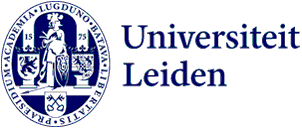146 search results for “catalysis surface” in the Staff website
-
 Marinka de Willigen
Marinka de WilligenFaculty of Science
-
 Nikoo Ghanadan
Nikoo GhanadanFaculty of Science
-
 Lipeng Yao
Lipeng YaoFaculty of Science
-
 Yidan Peng
Yidan PengFaculty of Science
-
 Phebe van Langevelde
Phebe van LangeveldeFaculty of Science
-
 Anna Strijevskaya
Anna StrijevskayaFaculty of Science
-
 Tarik Zahzah
Tarik ZahzahFaculty of Science
-
 Justina Moss
Justina MossFaculty of Science
-
 Ying-Ying Lu
Ying-Ying LuFaculty of Science
-
 Rick Kort
Rick KortFaculty of Science
-
 Pieter de Haij
Pieter de HaijFaculty of Science
-
 Kees Kolmeijer
Kees KolmeijerFaculty of Science
-
 Jetse van Os
Jetse van OsFaculty of Science
-
 Erik de Heer
Erik de HeerFaculty of Science
-
 Jan Sebastian Dominic Rodriguez
Jan Sebastian Dominic RodriguezFaculty of Science
-
 Lucas de Kam
Lucas de KamFaculty of Science
-
 Shengxiang Yang
Shengxiang YangFaculty of Science
-
 Kyra Herrema
Kyra HerremaFaculty of Science
-
 Syed Shah
Syed ShahFaculty of Science
-
 Martijn van der Plas
Martijn van der PlasFaculty of Science
-
 Robert van Bree
Robert van Bree -
 Vladimir Calvi
Vladimir CalviFaculty of Science
-
 Jaco Geuchies
Jaco GeuchiesFaculty of Science
-
 Onno van der Heijden
Onno van der HeijdenFaculty of Science
-
 Hassan Nagra
Hassan NagraFaculty of Science
-
 Nipon Deka
Nipon DekaFaculty of Science
-
 Rik Mom
Rik MomFaculty of Science
-
 Lies Bouwman
Lies BouwmanFaculty of Science
-
 Geert-Jan Kroes
Geert-Jan KroesFaculty of Science
-
 Sergi Campos Jara
Sergi Campos JaraFaculty of Science
-
 Jörg Meyer
Jörg MeyerFaculty of Science
-
 Dennis Claessen
Dennis ClaessenFaculty of Science
-
Landscaping
The Landscaping department manages, cares for and maintains all green spaces, road surfaces, waterways and ponds located on University grounds. The Landscaping department also performs work on request.
-
 Mark Somers
Mark SomersFaculty of Science
-
Spinoza and Stevin Prizes for three Leiden professors
Three Leiden professors have recently been awarded the most prestigious scientific accolade in the Netherlands: Maria Yazdanbakhsh and Marc Koper have been awarded a Spinoza Prize and Judi Mesman a Stevin Prize. They received their prizes on 13 October.
-
 Greta Fogar
Greta FogarFaculty of Science
-
 Daria Kotova
Daria KotovaFaculty of Science
-
 Selda Abyar
Selda AbyarFaculty of Science
-
 Ludovic Bretin
Ludovic BretinFaculty of Science
-
 Valeriia Andreeva
Valeriia AndreevaFaculty of Science
-
 Irene Regeni
Irene RegeniFaculty of Science
-
 Yurii Husiev
Yurii HusievFaculty of Science
-
 Jan Reedijk
Jan ReedijkFaculty of Science
-
 Yvonne Snellenberg
Yvonne SnellenbergFaculty of Science
-
 Sipeng Zheng
Sipeng ZhengFaculty of Science
-
 Eite Drent
Eite DrentFaculty of Science
-
Painting and Drawing
Arts and leisure, Arts and leisure
-
 Fatemeh Khodadustvaskasi
Fatemeh KhodadustvaskasiFaculty of Science
-
 Sarmistha Bhunia
Sarmistha BhuniaFaculty of Science
-
 Ankush Singhal
Ankush SinghalFaculty of Science
